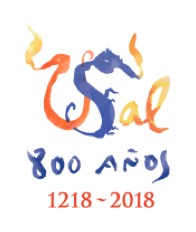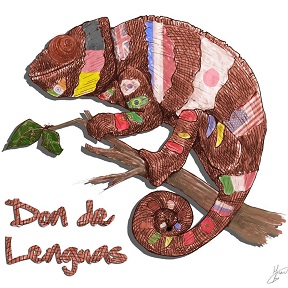Susan Bassnett
Visibility and Judgement in Translation
- Languages: EN
ES (Interpreting, with student participation, will be provided) - Auditorio
Abstract
I am talking about the whole vexed question of whether visibility is always desirable in translations and whether foreignisation is always a good thing. I point out that the translations of authors which sell the most do NOT demonstrate the visibility of the translator, quite the reverse. I cite the first and the new translators of Asterix who insist that they must be invisible. I point out the over-simplification of Venuti's binary distinction between foreignisation and domestication, and I return to the terminology that Lefevere and I developed as to the role of the non-professional reader. Running through the talk is the question of how we evaluate a translation, and I refer to my own experience as a judge of many international prizes, also to the views of Horace Engdahl, former secretary of the Nobel prize committee. My conclusion asks why is it that scholars of translation and comparative literature have focussed so much on 'high' cultural texts, when evidence suggests that the texts which circulate most widely in translation are those read by non-professional readers.
Bionote
Susan Bassnett is Professor of Comparative Literature at the University of Glasgow and Professor Emerita at the University of Warwick. She is a Fellow of the Royal Society of Literature, a Fellow of the Institute of Linguistics and President of the British Comparative Literature Association. She is author of Translation Studies, 4th Edition (2014), Constructing Cultures, Comparative Literature, Postcolonial Translation, Translation, Translation and World Literature.
Dorothy Kenny
Frictionless Borders? Boundary shifting in human and machine translation
- Languages: EN
ES (Interpreting, with student participation, will be provided) - Auditorio
Abstract
Recent developments in the translation industry have led some commentators to claim that it no longer makes sense to distinguish between human and machine translation: the interdependence of the two modes in some production environments makes it difficult to tell machine outputs from human outputs, and for the purposes of quality assessment at least, the genesis of the translation might not make much difference anyway. At the same time, machine translation is encroaching upon areas that were previously held to be bastions of human translation and it may not be fanciful to suggest that we are now closer than ever to “a possible future when automated translation might very well function in a basic manner for all discourse, even the literary” (Raley 2003). Claims are increasingly being made that attribute human-like understanding of language to computers, with machine translation engines being credited with the ability to “learn metaphors” and “find cultural equivalents” (Packer 2016). The discursive construction of translation is changing in line with these trends: labels such as “human/machine translation” refrain from indicating who or what is assisting whom or what, and schematic representations of translation workflows are shifting from linear to radial formations, where human translators are seen as hubs rather than endpoints. Against this background of flux, it is fitting to ask how such changes impact on our very understanding of translation and translators, and how we, as translation sholars, teachers and practitioners, might position ourselves for the future. In this paper, I attempt to address these issues, drawing on industry views and academic scholarship in translation studies and related areas. I attempt to systematize existing scholarship in the area, to ask what we agree on, and where technology-alert translation scholarship is likely to take us over the next decade or so.
Bionote
Dorothy Kenny, BA, MSc, PhD, is Professor in the School of Applied Language and Intercultural Studies at Dublin City University (DCU), where she lectures in translation technology, terminology and corpus linguistics. Her publications include: Lexis and Creativity in Translation: A corpus-based study (St. Jerome/Routledge, 2001) and the edited volumes Unity in Diversity: Current Trends in Translation Studies (St. Jerome/Routledge, 1998), Across Boundaries: International Perspectives on Translation Studies (CSP, 2007) and Human Issues in Translation Technology (Routledge, 2017). She has authored numerous refereed articles and book chapters on corpus-based translation studies, computer-aided translation, translator training, and translation theory. She is an Honorary Fellow of the Chartered Institute of Linguists in the UK, and a former Board Member of the European Master’s in Translation (EMT).
Salvador Gutiérrez
Micro-Discourse Syntax
- Languages: ES
EN (Interpreting will be provided) - Auditorio
Abstract
Las aportaciones de la pragmática a la lingüística (enunciación, modalidad, actos de habla, implicaturas, proceso inferencial...) han permitido abordar un nuevo ámbito de la combinatoria: la sintaxis de enunciados. Coordina procesos codificados e inferenciales y se propone como objetivo explicar construcciones superiores tales como períodos y microdiscursos. Se parte de una hipótesis inicial (el microdiscurso no puede ser un montón de enunciados) y se intenta buscar las relaciones que intervienen en la formación de su estructura. El método utilizado es funcional-relacional.
Bionote
Salvador Gutiérrez Ordóñez es Catedrático de Lingüística General de la Universidad de León. Santander y desde 2008 es miembro de la Real Academia Española. Fue el académico responsable de la Ortografía de la lengua española (2010) y de la Nueva gramática básica de la lengua española (2011). Por acuerdo del Consejo de Ministros de 30 de diciembre de 2010, fue designado uno de los ocho vocales de la Comisión de modernización del lenguaje jurídico. Es, asimismo, miembro del Consejo asesor de la Fundéu. Su labor científica se resume en una veintena de libros y más de cien artículos. A los estudios de Semántica hay que añadir trabajos de sintaxis desde una perspectiva funcional, aunque incardinados con avances y descubrimientos propios de otras corrientes tanto estructuralistas como generativistas. Así, al nivel de las funciones sintácticas formales incorpora el nivel semántico y el nivel informativo. Otra parte de sus investigaciones versan sobre la periferia oracional y ofrece un tratamiento innovador de las relaciones de causalidad o relaciones argumentativas. Ha estudiado fenómenos como la topicalización, el verbo enunciativo, las relaciones explicativas, la sintaxis de enunciados…
Christiane Nord
Escape into Adventure… The Phatic Function as a Persuasive Medium
- Languages: ES
EN (Interpreting will be provided) - Auditorio
Abstract
Advertising texts are intended to persuade readers to buy a specific product or service. In order to fulfill this purpose, several strategies are employed. As well as direct appellative statements (such as recommendations or invitations), these texts include referential, expressive and phatic elements in order to achieve their persuasive goal. According to Jakobson (1960), the phatic function has a main role in the communicative medium; it is a very important means when establishing contact between sender and receiver. When the communication medium fails, the advertising message cannot reach the receiver. Taking as an example a corpus of advertising texts published in England, Spain and Germany, the phatic elements used to achieve a persuasive function will be analysed.
Bionote
Christiane Nord is a public translator of German, Spanish and English (Heidelberg 1967). Professor Emeritus at Magdeburg-Stendal University of Applied Sciences, Germany (1996-2005). Since 2007, she has worked as Professor Extraordinary for the University of the Free State of Bloemfontein, in the Republic of South Africa. PhD in Romance Studies, Habilitation in Applied Translation Studies and Translation Pedagogy (Viena 1993). "Doctor honoris causa" by the University of Geneva (2015). From 1967 to 2005, she taught Spanish-German translation and General and Specialised Translation (from a functionalist point of view). Since her retirement, she has participated in diverse colloquia and seminars related to these topics in conferences and universities around the world. More than 220 publications in German, Spanish and English -translated into Italian, Brazilian Portuguese, Chinese, Korean, French, Greek and Arabic- about theoretical, methodological and pedagogical aspects of translation. These include: Texto base – texto meta (2013, Castellón), Traducir, actividad con propósito (2017, Berlín). Translation of The New Testament and apocryphal texts into German (with Klaus Berger, first published in 1999). Honorary Professor at the University of Vigo, Spain. Visiting Professor at several Universities in the People's Republic of China.
Edwin Gentzler
The Democratization of Translation Studies
- Languages: EN
ES (Interpreting, with student participation, will be provided) - Auditorio
Abstract
Translation studies scholars have traditionally studied texts that are called translations in the receiving cultures. And scholars in that field have traditionally been nearly perfectly bi-lingual and bi-cultural, literary and/or linguistic scholars of the highest order. "Accuracy" of the translation remains the dominant critical criterion.
But in the age of mass media, blogs, online journals, reader reviews, and fan fiction, accuracy in translational is not always the most important factor. Instead, social and political insight moves to the forefront.New forms of translated "texts" are circulating, sometimes called versions, adaptations, and rewritings, are often only tangentially related to the "original." Many of the rewriters and reviewers today have limited language skills and base their "translations" on previous versions.
This talk discusses the "politics" of such a movement, looking first at rewritings, adaptations, and sequels, often in film, theater and music, but also in history, politics, and philosophy; and second at post-translation repercussions, how translations can introduce new ideas and forms, thereby effecting social change. While some ts scholars are skeptical of including such a wide range of texts in the ts corpora, I suggest that this democratization of the field helps move it from the halls of academia and into that lively social arena where social and political change is possible.
Bionote
Edwin Gentzler is an Emeritus Professor of Comparative Literature and served for many years as Director of the Translation Center at the University of Massachusetts Amherst. He is the author of Translation and Rewriting in the Age of Post-Translation Studies (Routledge, 2017), Translation and Identity in the Americas (Routledge, 2008), and Contemporary Translation Theories (Routledge, 1993), reissued in several revised editions and translated into Italian, Portuguese, Bulgarian, Arabic, Persian, Chinese, and Greek. He is the co-editor (with Maria Tymoczko) of Translation and Power (University of Massachusetts Press, 2002). He served on the executive committee for the Nida Institute and was one of the co-founders and board member of ATISA (American Translation and Interpreting Studies Association). He was co-editor (with Susan Bassnett) of the Topics in Translation Series for Multilingual Matters, editing over twenty volumes.
Georges Bastin
For a Specific and Appropriate History of Translation
- Languages: ES
EN (Interpreting will be provided) - Auditorio
Abstract
This presentation will focus on the importance of historical studies within translation studies. The influence of translation history on several theoretical approaches developed in the field (descriptive, cultural, sociological) will be underlined. More specifically, the relation between the above-mentioned theoretical approaches and a historiographic methodology will be explored. After analysing a range of historiographic studies and theoretical models while focusing on Hispano-American examples (foundational documents of the emancipation period, spiritual conquest, pro-independence press and travellers), rigour and subjectivity in historiographic research will be dealt with. Special importance will be placed on the fact that it is necessary to use localised concepts, Latin American in this case, in order to counterbalance the Eurocentric vision of Latin American history. Lesser-known concepts such as “intercultural transference” and telos will also be mentioned.
Bionote
Georges L. Bastin (http://georgesbastin.ca), Ph.D in Translation Studies (Université de Paris III), is Associate Professor in the Département de linguistique et de traduction at the Université de Montréal. He is the editor of META. He has participated as a speaker in doctoral courses and workshops focusing on theory, revision and history at various European and Latin American universities. His research interests include: translation pedagogy and translation history. He is the author of ¿Traducir o adaptar? (1998) and co-author of Iniciación a la traducción (2006), Charting the Future of Translation History (2006) and Profession traducteur (2012). He is also featured as an author in the Routledge Encyclopaedia of Translation Studies. Moreover, he has written diverse book chapters and articles in different journals. He is the editor of several issues published in TTR and META. He heads the Research Group on Translation History in Latin America (http://histal.ca). From 2006 to 2010, he was President of the Canadian Association for Translation Studies (ACT-CATS) and is now (since 2014) President of the Canadian Association of Schools of Translation(CAST). He is also a member of the scientific committee for several journals. He is a member of the Ordre des traducteurs, terminologues et interprètes agréés du Québec (OTTIAQ) [a professional order representing translators, terminologists and interpreters in Quebec].





